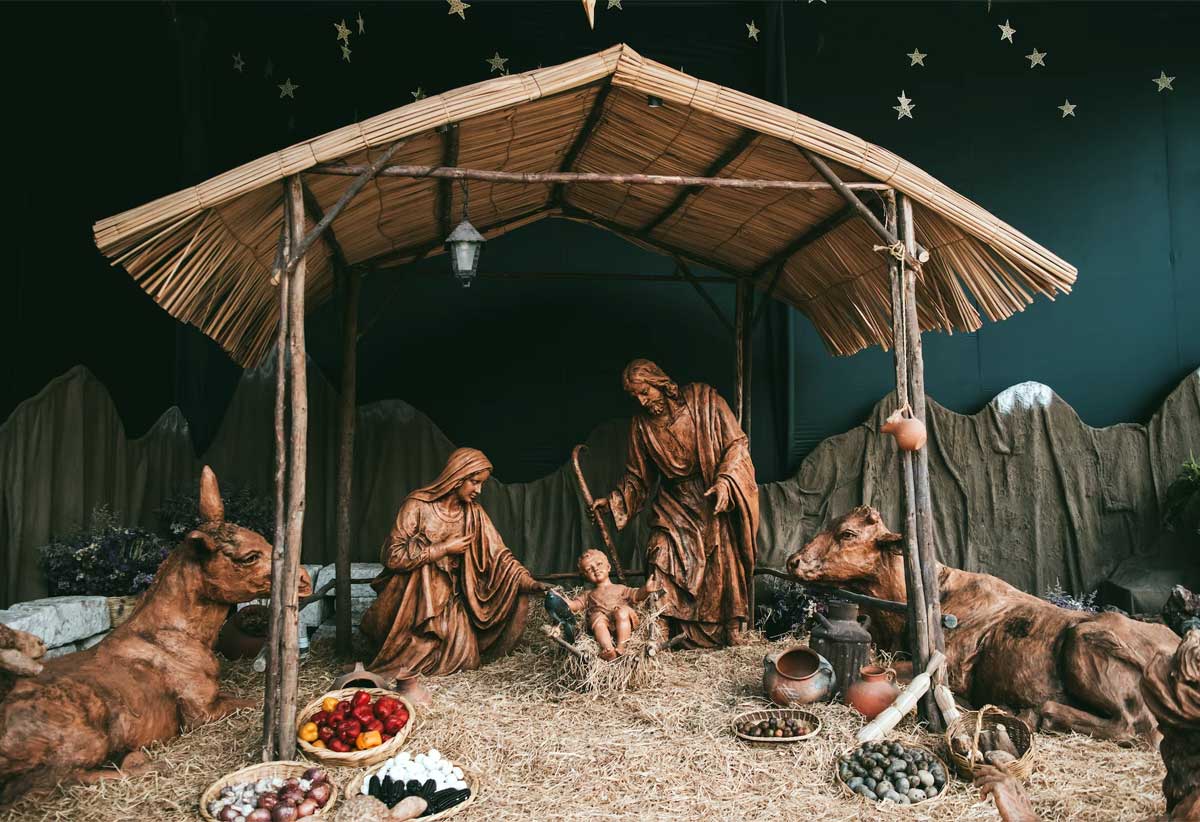December 25 will soon be upon us, the day some Christian denominations recognise as the birthday of Jesus Christ. These denominations will hold church services and other events to honour that day.

Let us be clear. This editorial in no way challenges the historical fact of the life of Jesus Christ. History records that Christ walked this earth as a human being, not as a spirit, more than 2000 years ago. His birth is recorded, historically, in the document the Christian denominations revere, a document they consider to be their textbook for achieving life everlasting – the bible. Yet, not one denomination, over millenniums, has been able, nor have most tried to prove that Christ’s birth occurred on December 25.
This is fascinating and worth pondering upon. Let’s take some logical steps here: Christ was born, that’s a fact accepted by Christians throughout the ages and supported by history. No arguments there. But did that birth take place on December 25? Further, the story of that birth, as recorded in the bible, did not give the slightest of clue that it took place in the month of December. Therefore, how in heaven’s name was December 25 selected as the date of his birth?
To make this whole December 25 birthday even more bizarre, Mankind, throughout its more than two millennia since the birth of Christ, has yet to produce a document purporting to show that Christ’s birth took place on December 25. How then has this been able to gain so much acceptance among people such as the educated and the uneducated, lords and commoners, priests and parishioners, popes, presidents, prime ministers, rulers of realms and kingdoms.
Before we delve deeper let’s recognise that commercially, Christmas is successfully marketed the world over. It’s a huge marketing gimmick which has taken civilization by storm over the centuries, but particularly in the last one hundred and fifty years.
Now let’s get to work.
The origins of Christmas stem from both the pagan and Roman cultures. The Romans celebrated two holidays in the month of December. The first recorded Christmas celebration was in Rome on December 25, AD 336. In the 3rd century, the date of the nativity was the subject of great interest. Saturnalia, was a two-week festival honoring the god of agriculture, Saturn. On December 25th, they celebrated the birth of Mithra, the sun god. (voiceandvisioninc.org)
Who invented the first Christmas?
The first recorded incidence of Christmas being celebrated dates all the way back to the Roman Empire in 336, during the time of the Roman Emperor Constantine – so technically the Romans invented it, although there’s no specific person who is credited with having done so. (Wikipedia)
When then, was Jesus born?
The date of birth of Jesus is not stated in the gospels or in any historical sources but most biblical scholars assume a year of birth between 6 and 4 BC. (blog.oup.com)
Christmas was traditionally a Christian festival celebrating the birth of Jesus, but in the early 20th century, it also became a secular family holiday, observed by Christians and non-Christians alike and exploited especially commercially. (britannica.com)
When Christianity was still a new religion, nobody even thought to celebrate the birth of Jesus. Only in the fourth century did Pope Julius choose to celebrate the occasion on December 25th, conveniently timed to overshadow and absorb the traditions of Yule and Saturnalia. A bloody battle between pagan holidays and Christian rule ensued, and by the Middle Ages, Christmas had almost completely replaced the ancient pagan holidays. (attitudeclothing.co.uk/blog/the dark origins of Christmas)
It must be pointed out that during the first two centuries of Christianity, there was strong opposition to recognising birthdays of martyrs, or for that matter, Jesus. Clearly, Christ was not born on December 25. Why then do Christians celebrate December 25 as the birthday of Jesus Christ with church services, feasting, partying and other festivities that are certainly not holy in nature?
One can only conclude that once December 25 became embedded in the Christian calendar it became a part of the culture of Christians and, indeed, the Western world. Historical truth gave way to habitual custom.




![MSS takes on VPSS in an action thriller [Photo credit: MYDS]](https://thevoiceslu.com/wp-content/uploads/2026/02/MSS-takes-on-VPSS-in-an-action-thriller-feat-380x250.jpg)
![Tapon House recorded its fourth consecutive title victory [Photo credit: MYDS]](https://thevoiceslu.com/wp-content/uploads/2026/02/Tapon-House-recorded-its-fourth-consecutive-title-victory-380x250.jpg)







